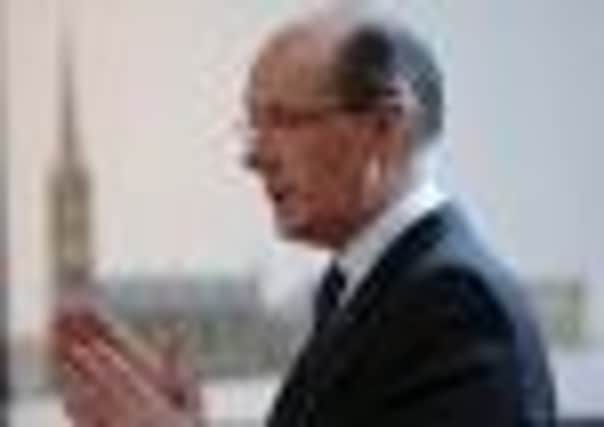Budget 2012: Chancellor has ‘failed the growth and fairness test’


Mr Swinney said the Chancellor’s Budget “fails the growth and fairness test”, after the plans allocated £20.3 million in Barnett consequential funding to Scotland, which the UK government insisted meant Holyrood had received more than £1 billion in additional funds since 2010.
The SNP minister said the Chancellor was just “tinkering at the edges of what was required”, with UK government measures in the Budget to boost investment in the North Sea and offer tax advantages to firms.
Advertisement
Hide AdAdvertisement
Hide AdMr Osborne was also accused of delivering a “Budget riddled with unfairness” by Scottish Labour leader Johann Lamont, who heavily criticised the Chancellor’s controversial move to slash the top rate of tax from 50p to 45p.


Grahame Smith, Scottish Trades Union Congress general secretary, also claimed Mr Osborne had delivered a “millionaires’ Budget” as he warned that the tax cut would “fail to stimulate the economy” and reduce high unemployment rates.
However, Scottish Conservative leader Ruth Davidson said millions of Scots would benefit through changes to tax bands and personal allowances.
Ms Davidson said: “This is a great Budget for Scotland that will see millions of Scots gain financially from what the Chancellor has announced today. From next year all those earning under £9,200 will pay no tax.
“Millions more will benefit from the increase in the personal allowance, leaving them with more spending power to help support them through these difficult economic times.”
Mr Swinney welcomed the new tax allowances for the North Sea oil and gas sector, including a £3bn new-field allowance for large and deep fields to open up west of Shetland.
But he warned that there were “no new resources” and “no major initiatives” alongside the Chancellor’s announcement of enterprise zones – offering tax allowances to businesses in Irvine, Nigg and Dundee.
Mr Swinney, who disputed the UK government figures on Scotland’s share of funding, said: “This Budget fails the growth and fairness test. At a time when growth is very low in the economy and significant stimulus is required, the Chancellor has allocated next to no new resources and taken no major initiatives to support this effort.
Advertisement
Hide AdAdvertisement
Hide Ad“We needed to see a sustained, targeted programme of capital investment to act as an economic stimulus. Unfortunately the Chancellor failed to deliver.
“The Budget delivers only £4m a year for Scotland, mere tinkering at the edges of what was required.
“The Chancellor talks about fairness, yet he’s fixated on reducing the top rate of income tax and driving down public sector pay in areas outside London, which will only serve to exacerbate regional inequalities and undermine recovery in the most fragile areas.”
Ms Lamont said the Chancellor was “balancing his Budget on the backs of the poor” as she accused Mr Osborne of including cuts to tax credits for working families in his spending plans.
She said: “Gone is the talk of ‘we are all in this together’. This is a Budget riddled with unfairness, which reflects the failings of George Osborne’s policies.
“He is putting millionaires ahead of the millions. Scots will be furious to see a gang of Cabinet millionaires giving tax cuts to millionaires, but taking tax credits away from ordinary families earning just £17,000 and taxing pensioners more.”
But Ms Davidson insisted the Scottish funding deal boosted the case for staying in the UK, and welcomed what she said was the biggest ever cash increase in the basic state pension, £5.30 a week.
She said: “Today’s Budget is something that should be welcomed across all political parties. It emphasises the benefits we receive from being part of the UK and why we are better off in Britain.”
Advertisement
Hide AdAdvertisement
Hide AdMeanwhile, Scottish Lib Dem leader Willie Rennie claimed the Chancellor’s decision to raise the income tax threshold to £9,205 was due to the influence of his party in the coalition.
He said: “The Liberal Democrats are making this a fair government, while getting the economy back on track.”